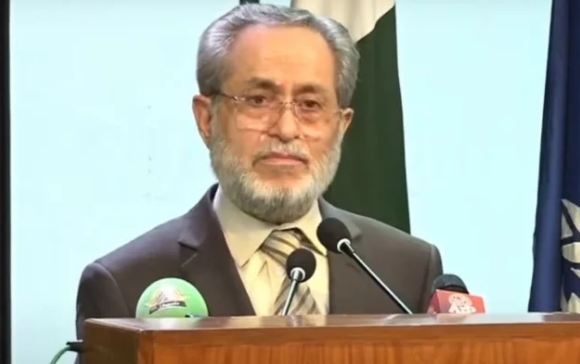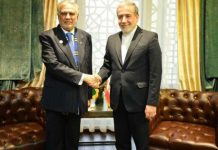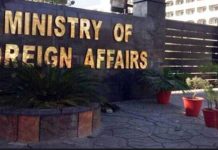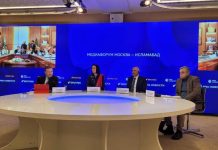ISLAMABAD, JUN 20: Supreme Court Justice Jamal Khan Mandokhail said on Friday there had been instances when politicians did not implement the top court’s ruling.
The SC judge made these remarks during the hearing of reserved seat case wherein Pakistan Tehreek-e-Insaf (PTI) leader and senior lawyer Salman Akram Raja cited the Asghar Khan case.
Raja said he was present in the same court when, on the one hand, there was former chief of army staff Mirza Aslam Beg and on the other former chief of the air force Asghar Khan.
“They both testified that they interfered in the elections. [However,] it was said that it was done in the light of the national interest,” the lawyer said.
To which, Justice Mandokhail remarked: “We give judgments, but do politicians act on them?”
He further added that “at some point, one political party or another remained the beneficiary”.
Raja replied that he would shed light on this matter outside of the court.
The senior lawyer also maintained that the country had seen direct martial rule and sometimes under the guise of Article 58-2(b).
“You are narrating old history,” Justice Mandokhel replied.
Counsel Raja said the larger SC bench in its verdict had declared the process of the PTI-supported candidates’ joining the Sunni Ittehad Council (SIC) null and void.
Nevertheless, he said, the Supreme Court has also said in its decisions that if no injustice has been committed, then a wrong decision cannot be reviewed.
To a question asked by Justice Musarrat Hilali, if the right to vote is granted at the age of 10 years, Raja replied the law has determined the age for the right to vote.
“Some rights are granted to citizens only, some rights are regulated by the law and some rights are innate,” the lawyer added.
On May 26, the Supreme Court’s constitutional bench had observed that the SIC was not entitled to reserved seats, questioning how independents can join a political party that is not part of parliament.
The observation came while Justice Amin-ud-Din Khan was leading an 11-member constitutional bench that had heard arguments on whether the SIC could claim reserved seats after the inclusion of independent candidates.
The court had remarked that while independents can join a party represented in parliament, it is constitutionally unsound for them to join one that did not participate in the elections.
“How can independent candidates join a party not present in Parliament?” questioned Justice Hilali. “Did Sunni Ittehad Council even contest the elections?”
At the heart of the dispute lied a July 12, 2024, Supreme Court order that, if fully implemented, could see the Pakistan Tehreek-e-Insaf (PTI) emerge as the single largest party.
The July 12, 2024, order supported by eight out of 13 judges, had declared 39 out of 80 contested MNAs as returned candidates of the PTI. This ruling, if enforced, would significantly bolster PTI’s parliamentary strength.
However, implementation had been stalled, with the National Assembly yet to act and the Election Commission of Pakistan (ECP) raising objections. The Pakistan Muslim League-Nawaz (PML-N), the Pakistan Peoples Party (PPP), and the ECP had all filed review petitions against the Supreme Court’s order.

















